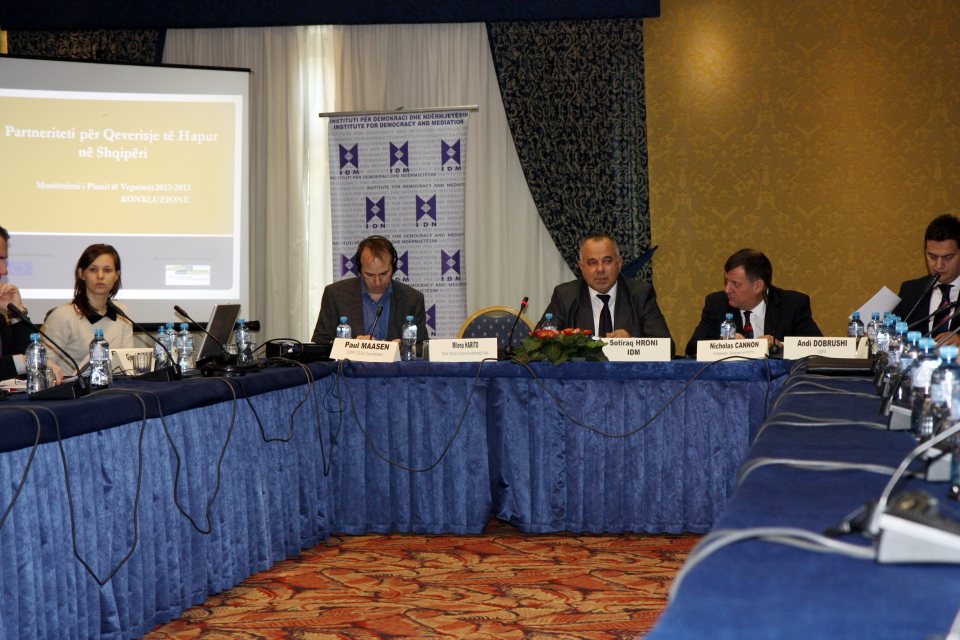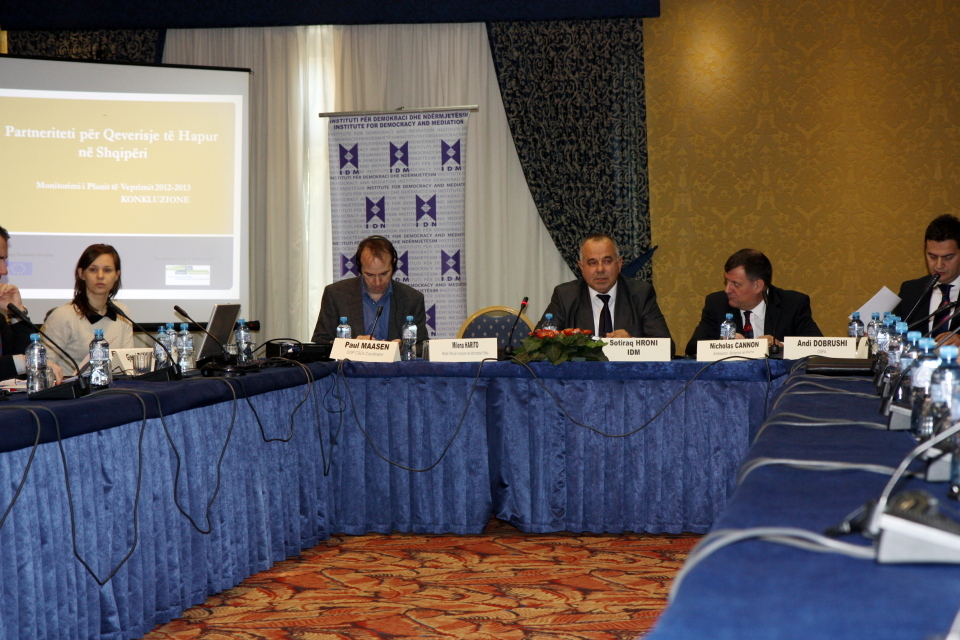Open Government Partnership
British Ambassador Nicholas Cannon speech at the Open Government Partnership conference in Tirana

Thank you for the opportunity to say a few words at this conference about the Open Government Partnership, organised by the Institute for Democracy and Mediation. The Open Government Partnership is an initiative to which the British Government, and in particular our Prime Minister Mr David Cameron, is strongly committed. Of course, no government can be totally open and transparent in its operations. There are issues of national security, public safety and financial market stability to take into account. There is the question of the privacy of individuals in their dealings in government agencies. And there has to be an area of discretion in which governments can consider policy options and officials can offer advice without publicity.

Open Government Partnership conference
However, upon this fairly narrow base most governments, including, historically, that of the United Kingdom, have built a huge apparatus of controlled information. Information is seen as the property of the state and its institutions rather than the citizen. Government institutions take decisions that affect both individual citizens and the general public behind closed doors. Statistics are manipulated for political advantage. The public are unable to find important information about the schools, hospitals and government ministries that they actually pay for. The real ownership of private companies is hidden behind networks of front companies.
No government is totally immune from such practices. These practices are bad for government policy making and bad for society. They provide the cover behind which the corrupt or incompetent can hide. They encourage contempt for the tax-paying citizens from politicians, government officials and businessmen. They erect barriers between individuals and their own democratically elected representatives, thereby undermining respect for democratic values. But the objective of greater transparency is not just a moral imperative. It also makes government and society more efficient. A government that publishes the details of its accounts and policies is in effect recruiting a force of amateur, unpaid auditors, that is to say the general public, to scrutinise its affairs to stimulate enhanced honesty and efficiency. A government that knows who owns what land and which companies is better able to obtain taxes in a fair and efficient manner.
A conviction of the importance of transparency and the drive for the maximum possible openness of government lies behind the Open Government Partnership, to which both the British and Albanian governments have committed themselves. The Open Government Partnership provides a public forum for governments to make commitments specific to the circumstances of their own countries. At the last Partnership Summit in London on 31st October, attended by Mrs Milena Harito, the Minister for Innovation and Public Administration, both the British and Albanian governments made some pretty challenging commitments. The British government committed itself to put in place mechanisms that would enable the real beneficial owners of British companies to be identified. Since there are over two million companies on the active register in the United Kingdom, and since concealing the real ownership of companies is something of an art form for our legal profession, this is going to be a huge job. As for Albania, the new government has committed itself to, and I quote, “Improvement of the public administration recruitment service through more transparent, merit-based and efficient process”. Again, something that Albania has not always found easy in the past.
The Open Government Partnership is an important vehicle for the transparency agenda in several ways. It encourages public, verifiable commitments by governments in front of an international audience. It helps governments share best practice on transparency, in particular making use of new technology. And most relevantly to today’s conference, it encourages engagement between governments and civil society to work together on making government more transparent, but also in finding mechanisms to make use of that transparency in the public interest. So this conference is a particularly worthwhile initiative and I wish you every success in your deliberations.